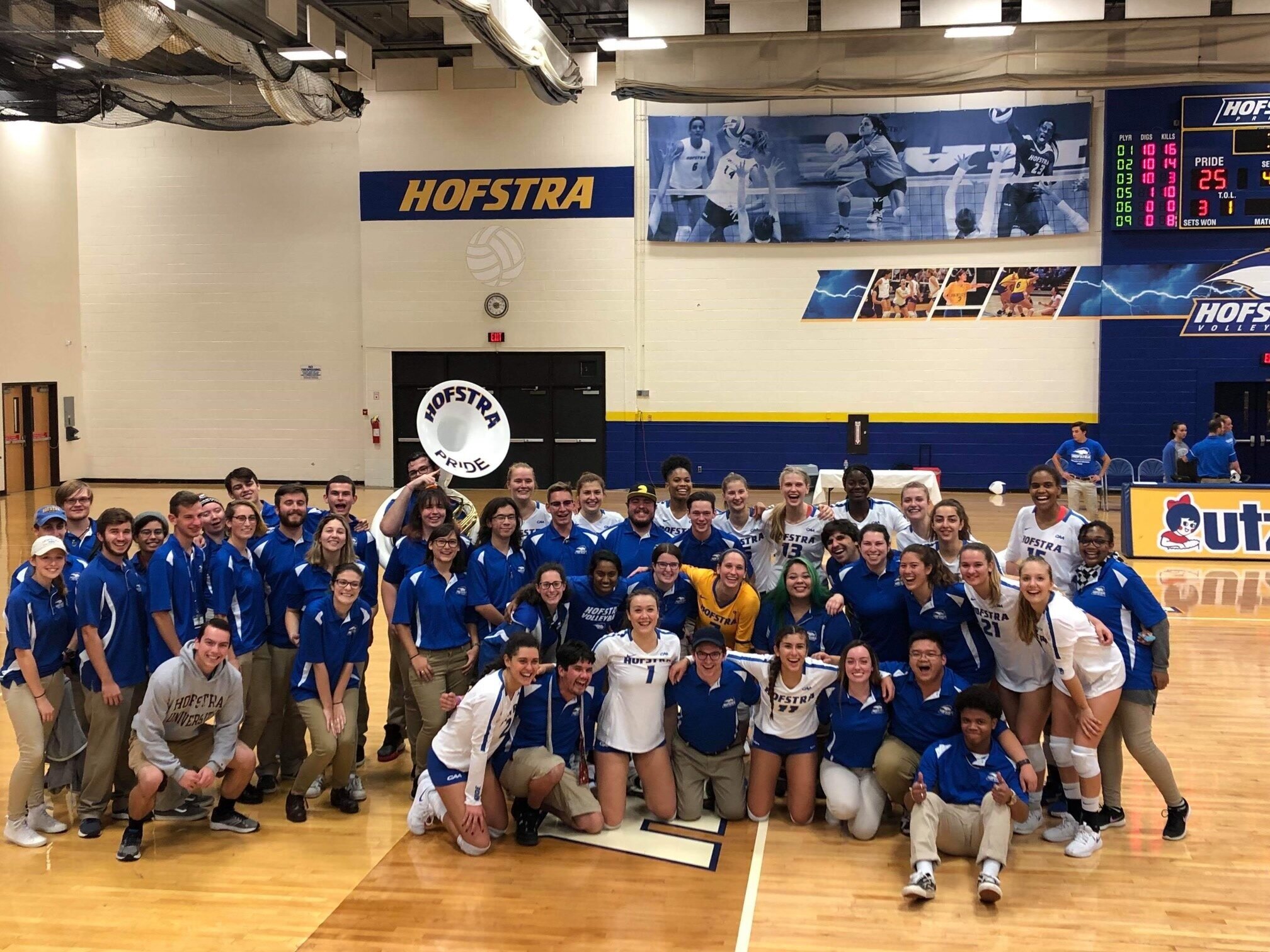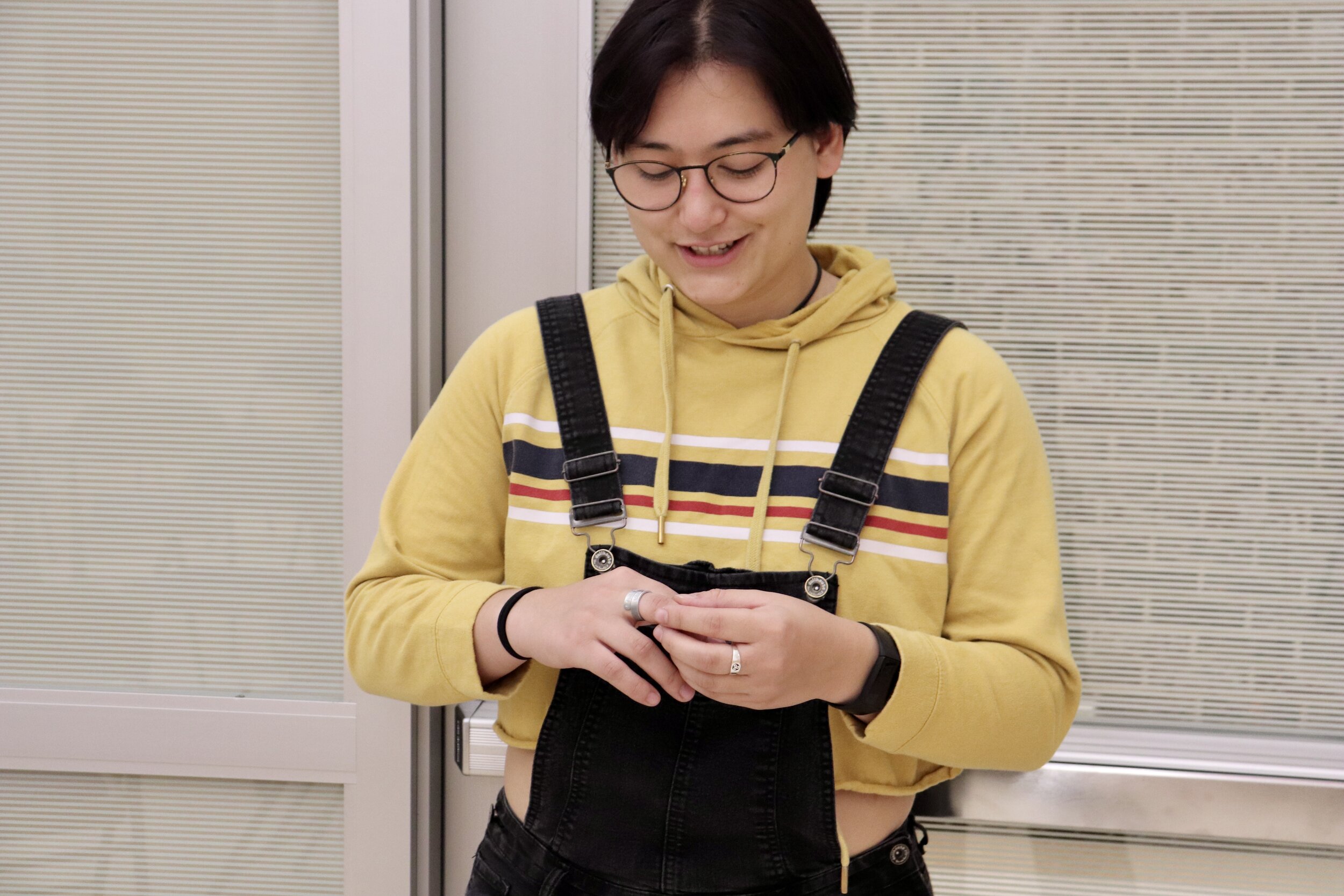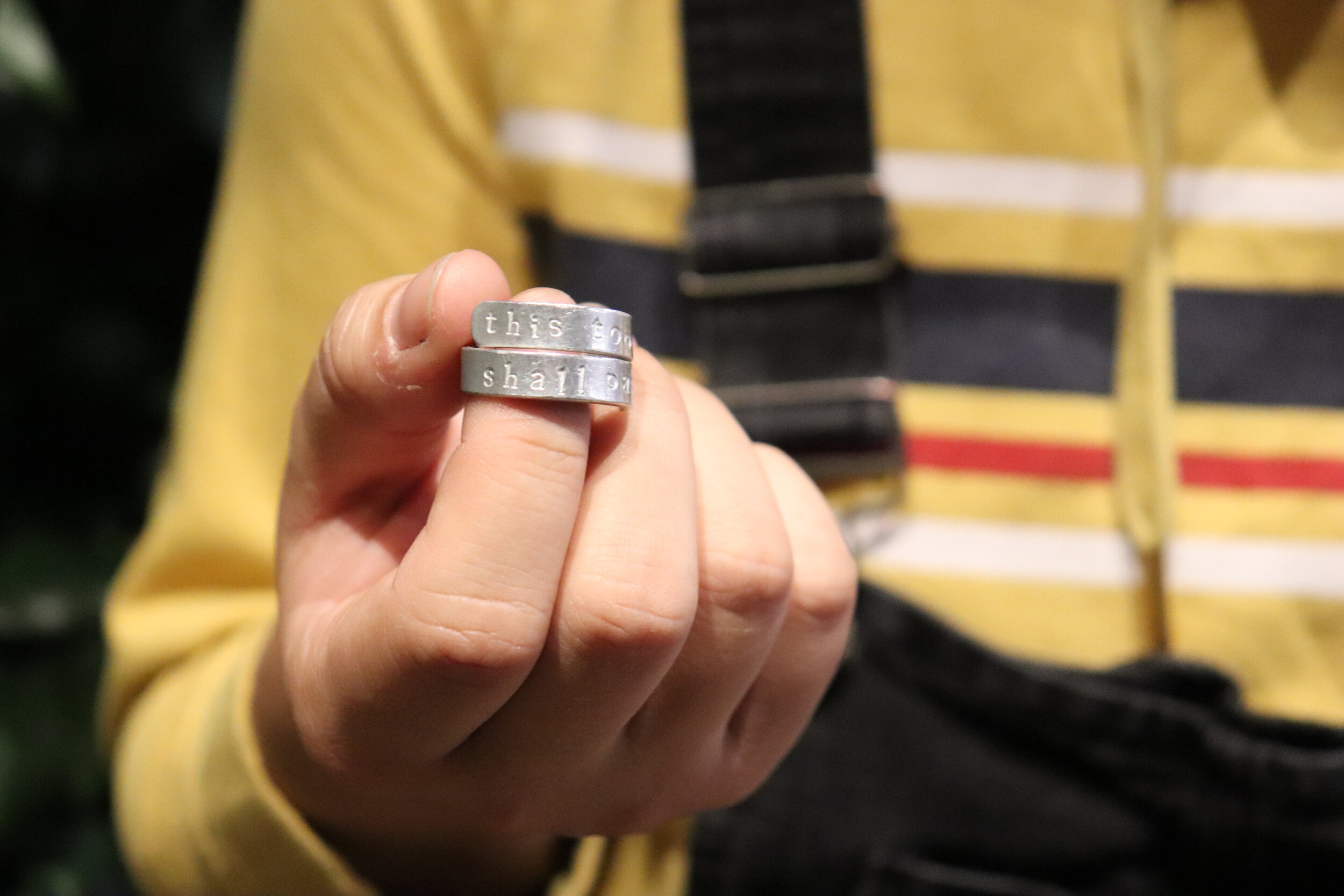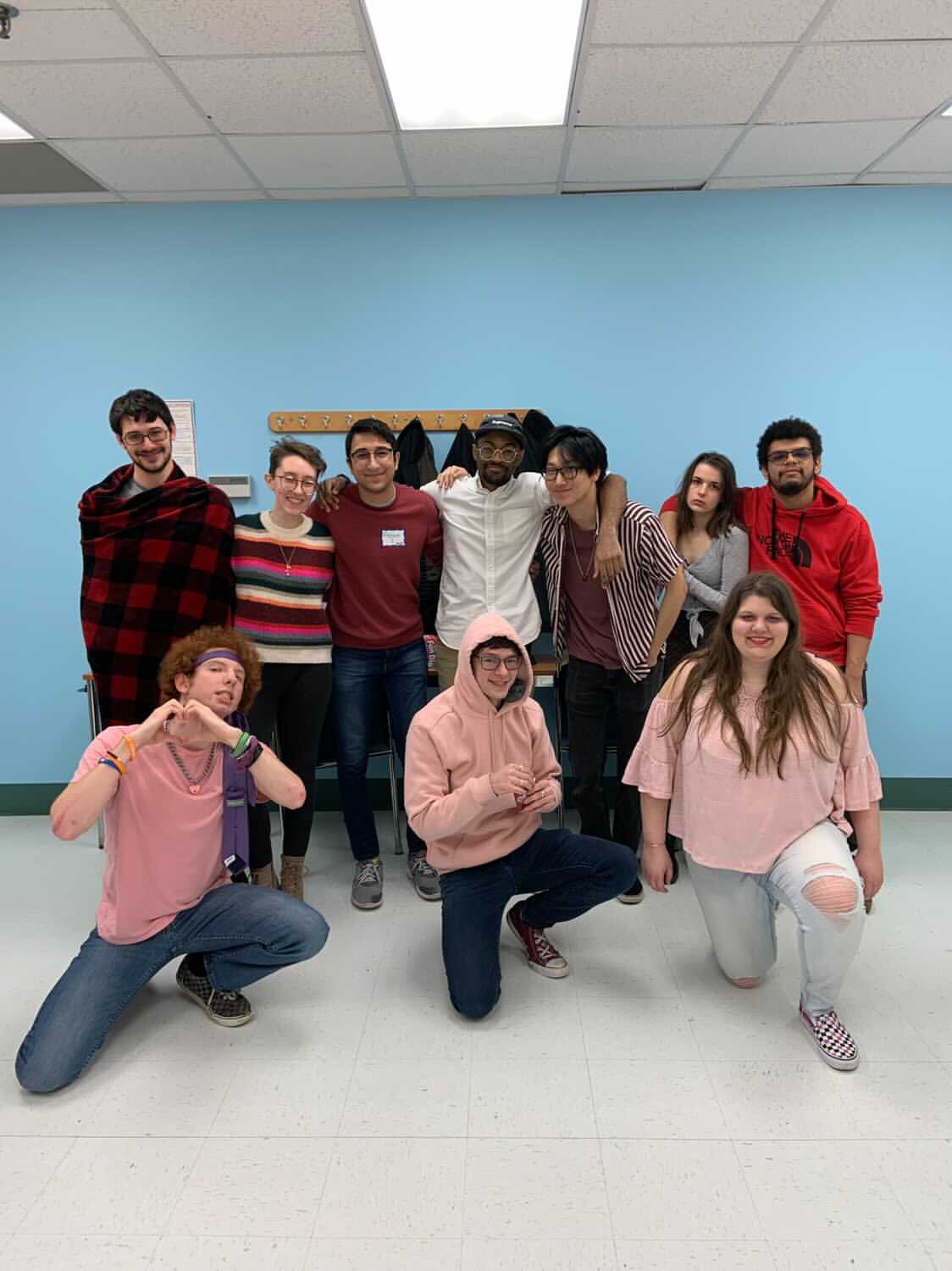A Hofstra Student Died. 1,500 Miles Away, Our Campus Grieved.
Trigger Warning: This article mentions suicide. If you or a loved one is struggling, you can reach out to the National Suicide Prevention Lifeline 24/7 at 1-800-273-8255. Hofstra’s Department of Public Safety also offers on-call crisis counselors which can be reached at 516-463-6789.
The Chambers family asks any donations Sterling’s honor be made to the Belgian Tervuren Rescue. The organization’s Paypal is TervurenRescue@gmail.com.
BY: SARAH EMILY BAUM
(Sept. 11, 2021) — Hofstra looks different today than it did six months ago. The typical sights and sounds of campus have returned with students packed tight in classrooms or standing shoulder-to-shoulder at Dutch Treats. By some accounts, Hofstra really is “Together Again” as their recent media campaign says.
But in other ways, relics of grief linger. The pandemic claimed over 656,000 American lives so far, according to the New York Times. Hofstra also lost one of our own when Sterling Chambers, a sophomore finance major, died by suicide six months ago today on March 11, 2021.
Friends described Chambers as talented, charming and ambitious. The first thing he would do each morning was check the stock market and tend to his portfolio. He was known around campus for wearing suits to class and handing out his business card, and he dreamed of writing a book imagining a more ethical capitalism.
“He was such an energetic person,” said Adam Yusupov, now a junior music business student, who had met Sterling at their freshman orientation. “He always wanted to do something.”
Chambers wasn’t alone in struggling throughout the pandemic.
The Centers for Disease Control reports young people were especially vulnerable to mental health crises during quarantine. One Boston University study, which surveyed 33,000 college students, found two-thirds of respondents struggled with loneliness and isolation during the pandemic. This also often exacerbated a person’s pre-existing mental health issues. Researchers called the findings “an all-time high prevalence that reflects the toll of the pandemic and the social distancing necessary to control it.”
A selfie with Sterling Chambers. Photo courtesy of Joan Holubeck.
Forty-eight hours after Chambers’ passing, several days before the school would send an announcement to the student body and a full week before his funeral, friends of Chambers gathered in a distant corner of the campus to mourn. It was March 13, 2021. New York State had reached an 11% vaccination rate just as the first anniversary of the school closure and lockdown passed.
Students who came together did so 1,500 miles away from Chambers’ Plano, Texas home, where he had been taking remote classes. At the time, students asked The Clocktower not to name the organizers or the specific location of the impromptu congregation because it broke the ten person gathering limit set by the state. They worried their act of grief could result in a disciplinary action.
Those who knew Chambers were still eager to remember the moments they shared with him. Elizabeth Nolan, a senior English education major, had been the president of Ambiguity Improv when Chambers was treasurer.
“The first time I saw him, I spoke to him for two minutes and felt he was right where he was supposed to be,” Nolan told The Clocktower. “He made every scene he was in better.”
Other friends of Chambers described him as driven, witty and vivacious, recognizable among the student body for his impeccable style.
Junior pre-med student Emma Wright had met Chambers during her freshman orientation, when they had been placed in the same cluster. He was, as always, wearing a suit despite the summer sun while offering other college freshmen his business card.
Wright had clocked him as a staff member upon first seeing him. Instead, she said, she soon found a friend.
Her favorite memory of Sterling, she told The Clocktower, was from a school dance they attended their freshman year. “Going into the dance he was totally faking it,” Wright said . “He told our friend group he was shy and nervous about going and that he didn’t know how to dance. So we were teaching him.”
Then, Freddie Mercury’s Bohemian Rhapsody came on the speakers, and Chambers, who had been a member of the Plano Children’s Theatre and did performing arts throughout his childhood, broke into an elaborately choreographed dance, much to everyone’s surprise.
“He totally just exploded, danced his little heart out. We were blown away,” said Wright. Then with his signature mischievous grin, he admitted, “I really do know how to dance.”
It was Chambers’ vibrant personality which made his suicide such a shock to many of his friends.
Studies show the motivations behind suicide can be complex and multifaceted, and that no single factor serves as a telltale sign. Resources from the Center for Addiction and Mental Health emphasize that suicide is never another person’s “fault” and that loved ones of the deceased should not place blame on themselves in the aftermath.
At the same time, suicide is preventable.
The American Foundation for Suicide Prevention reports one thing loved ones can do to support those in a mental health crisis is learn the signs of suicidality, which can include giving away one’s possessions, talking about suicide (even in a joking manner), expressing rage, hopelessness or despair, and sudden behavioral changes such as social withdrawal, avoiding food and sleep, increased substance abuse and risk-seeking activities. It may also look like a sudden and unexplained calm or happiness following an intense bout of depression, according to the National Institute for Mental Health.
Dr. John Guthman, Executive Director of Student Counseling Services at Hofstra, wants students to know there are resources on campus, including free short-term counseling, referrals to mental health professionals, on-call crisis counselors, year round workshops and mental health screening days.
“I want folks to know there are various levels of support we provide,” he told The Clocktower. “Students do not have to connect only when there are deficits or emotional crises. I would love for students to proactively think about wellness and self care.”
Sterling Chambers, bottom row center, with members of Ambiguity Improv. Photo courtesy of Elizabeth Nolan.
Eight days after Chambers passed, his funeral was held back home in Texas. It was attended by Hofstra students and faculty via Zoom, as the Dean of Students sent the link to the student body. A virtual memorial wall was also set up for loved ones to speak on Chambers’ life and impact.
The pandemic disrupted the way students were able to cope and grieve as many found themselves grappling with a tragedy so many miles away, yet so close to home. This was especially true for Joan Holubeck, a junior sustainability major and Chambers’ former partner.
“I couldn’t fly down for the service, which is something I really would’ve liked to have done,” Holubeck told the Clocktower. “You feel disconnected from the situation since it happened so many miles away. Sometimes it’s not real.”
The two met in the Hofstra Pep Band where Chambers played guitar and Holubeck played the clarinet and sousaphone. Holubeck spoke about being taken by Chambers' charisma and style. The two discussed philosophy, economics, music and their plans for the future.
A self-proclaimed “rule follower,” Holubeck credits Chambers for bringing them out of their shell, and encouraging them to tag along for late night escapades around campus.
“I was the way I was, a college freshman, not knowing anything about anything,” Holubeck said. “Sterling was the way he was -- striking. He knew a lot about a lot of things and he was passionate about what he knew.”
Holubeck said they found healing in friends and professional resources as the months passed. But as the school and the world reopens, they also described a sense of dissonance. “It feels like a lot of people have already moved on.”
Holubeck is one of many students still caught between two realities: watching Hofstra reopen and students return to campus, while also reckoning with the ones that won’t.
“It’s sad he wasn’t able to hang on a couple more months and see all this,” Holubeck said.
Meanwhile, as the Delta variant resurfaced COVID anxieties, studies also show a promising trend: resilience. In a recent article in The Atlantic, researchers with The Lancet, one of the world’s oldest medical journals, wrote:
“Early in the pandemic, our team observed in these studies what the media was reporting: Average levels of anxiety and depression—as well as broader psychological distress—climbed dramatically[...] But as spring turned to summer, something remarkable happened: Average levels of depression, anxiety, and distress began to fall.”
This is a sentiment Holubeck knows well. “There’s always hope,” they told The Clocktower. “I have a ring I wear that says, ‘This too shall pass.’ I think that’s true. It will get better -- that’s how life is.”









